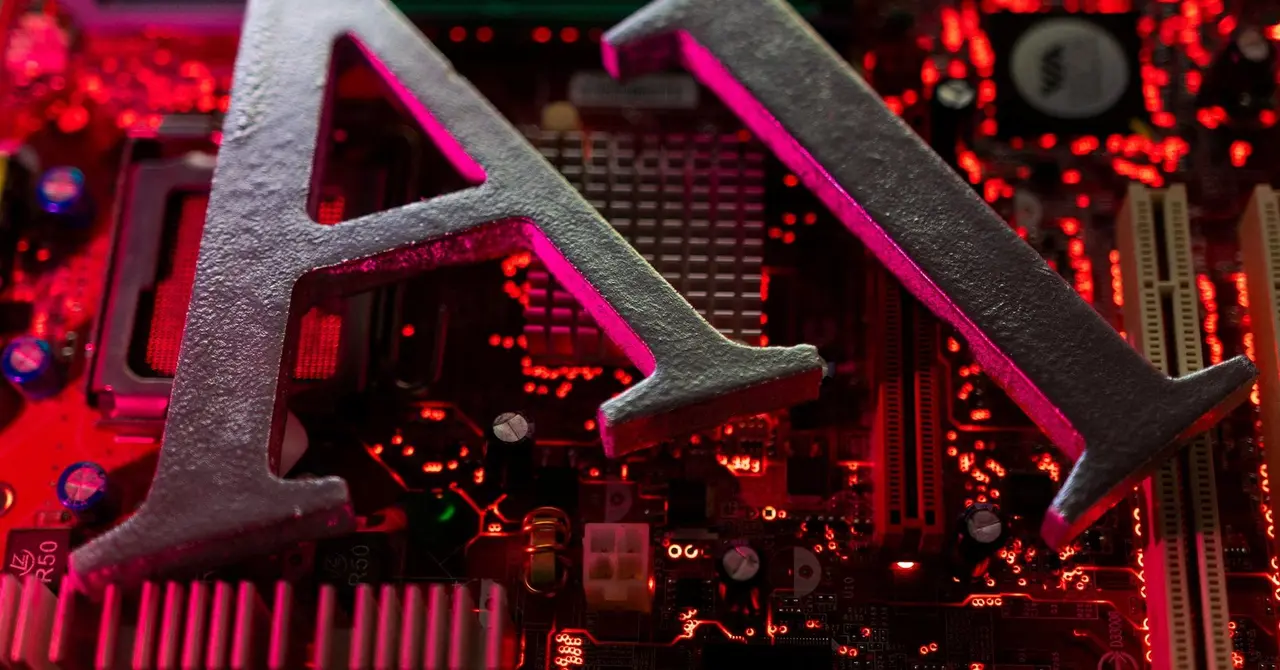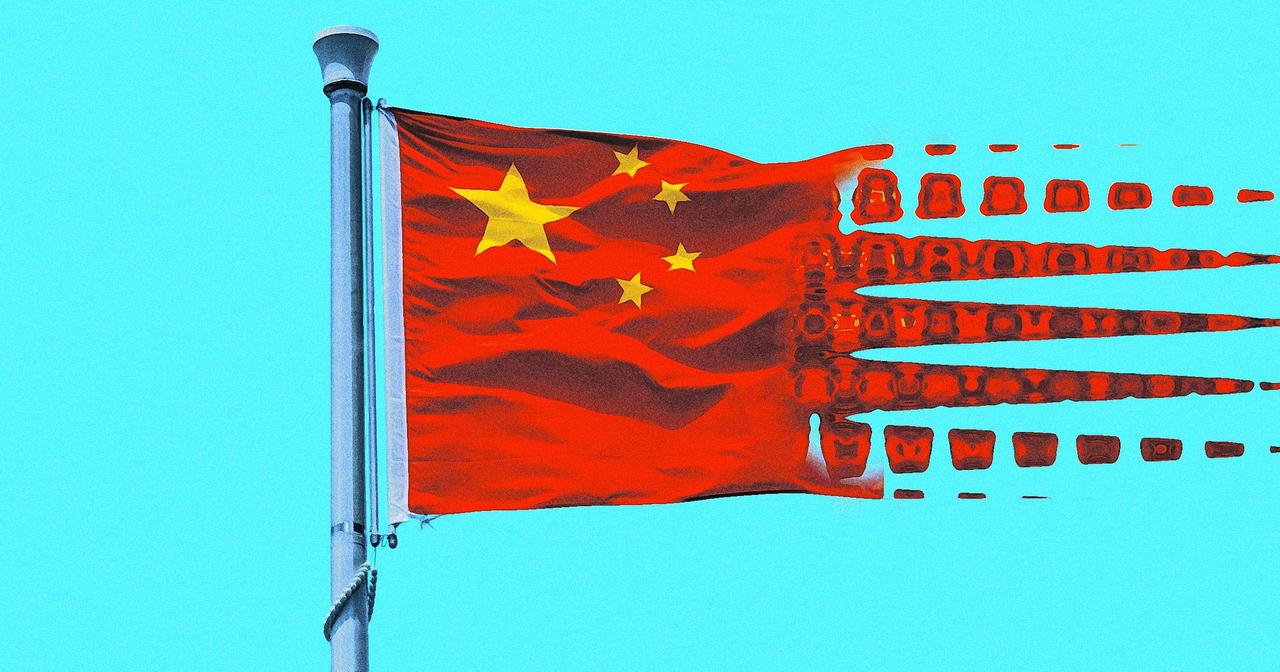China Warns Against 'Disorderly Competition' in Booming AI Race
3 Sources
3 Sources
[1]
China Warns Against 'Disorderly Competition' in Booming AI Race
China said it will prevent excess competition in the red-hot artificial intelligence sector, a signal that Beijing wants to avoid wasteful investment even as it seeks to turn the technology into a key pillar of the economy. The country's top economic planner said the government will encourage provinces to develop AI in a coordinated and complementary way. The goal is to leverage their distinctive strengths to foster growth without duplicating efforts, according to Zhang Kailin, an official with the National Development and Reform Commission.
[2]
China warns against 'disorderly competition' in booming AI race
The country's top economic planner said the government will encourage provinces to develop AI in a coordinated and complementary way. The goal is to leverage their distinctive strengths to foster growth without duplicating efforts, according to Zhang Kailin, an official with the National Development and Reform Commission. "We will resolutely avoid disorderly competition or a 'follow-the-crowd' approach," Zhang told reporters at a briefing Friday. Development should be based on local advantages, resources and industrial foundations, he said. His remarks echo Chinese President Xi Jinping's caution against excessive local government investment in AI last month. The comments underscore policymakers' desire to avoid a repeat of the overcapacity seen in other emerging industries like electric vehicles, which has contributed to deflationary pressures. Beijing has identified AI as a new growth driver for the world's second-largest economy and a critical area of competition with the U.S., which has spurred public and private investment. Earlier this week, the government published an action plan aimed at accelerating AI development, application and governance. The NDRC expanded on the proposal on Thursday, vowing better AI planning at the national level and greater support for private companies to nurture more "dark horses" for innovation, a likely reference to the rapid rise of Chinese startups like DeepSeek. The company catapulted to global prominence earlier this year with an powerful yet cost-effective AI model and spurred a domestic AI frenzy. A separate Bloomberg News analysis shows Chinese firms are aiming to install more than 115,000 Nvidia Corp. AI chips in data centers across the country's western deserts.
[3]
China warns against excess competition in booming AI race - The Economic Times
The country's top economic planner said the government will encourage provinces to develop AI in a coordinated and complementary way. The goal is to leverage their distinctive strengths to foster growth without duplicating efforts, according to Zhang Kailin, an official with the National Development and Reform Commission.China said it will prevent excess competition in the red-hot artificial intelligence sector, a signal that Beijing wants to avoid wasteful investment even as it seeks to turn the technology into a key pillar of the economy. The country's top economic planner said the government will encourage provinces to develop AI in a coordinated and complementary way. The goal is to leverage their distinctive strengths to foster growth without duplicating efforts, according to Zhang Kailin, an official with the National Development and Reform Commission. "We will resolutely avoid disorderly competition or a 'follow-the-crowd' approach," Zhang told reporters at a briefing Friday. Development should be based on local advantages, resources and industrial foundations, he said, expanding on an action plan published by the government earlier this week aimed at accelerating AI development. His remarks echo Chinese President Xi Jinping's caution against excessive local government investment in AI last month. The comments underscore policymakers' desire to avoid a repeat of the overcapacity seen in other emerging industries like electric vehicles, which has contributed to deflationary pressures. While the state planner didn't specify which part of the sector needs moderation, investment has been particularly pronounced globally in constructing datacenters that underpin AI development. A slowdown of that buildout would hit the providers of chips, networking and other components essential to servers, from Cambricon Technologies Corp. to Lenovo Group Ltd. and Huawei Technologies Co. The NDRC also emphasized the need to ensure "the orderly flow of talent capital and other resources." On Friday, Cambricon dived as much as 11% after warning investors about a doubling in its share price over just a month. The record gain helped fuel a $1 trillion Chinese market rally, as retail investors buy into the concept of Beijing's support for emerging technologies. The Chinese government appears to be pushing for a more calibrated approach to developing AI without slowing down overall progress. It has identified the technology as a new growth driver and a critical area of competition with the US, which has spurred public and private investment. The NDRC at the briefing vowed better AI planning at the national level and greater support for private companies to nurture more "dark horses" for innovation, a likely reference to the rapid rise of Chinese startups like DeepSeek. The company catapulted to global prominence earlier this year with an powerful yet cost-effective AI model and spurred a domestic AI frenzy. A separate Bloomberg News analysis shows Chinese firms are aiming to install more than 115,000 Nvidia Corp. AI chips in data centers across the country's western deserts. While the government moves to curb investor euphoria in emerging sectors, it's at the same time seeking to increase private investment in traditional industries to bolster economic growth. The authorities will set a minimum private shareholding requirement for infrastructure projects such as railways, nuclear power and oil pipelines, NDRC spokeswoman Li Chao said at the Friday briefing, a move aimed to broaden private investors' access to major national ventures. Policymakers are also considering increasing central government spending in projects related to people's well-being to ease the burden of debt-strapped local governments, she added. "The government increasingly recognizes the importance of boosting long-term consumption," said Michelle Lam, Greater China economist at Societe Generale SA, citing recent measures such as subsidies for pre-school education and childcare.
Share
Share
Copy Link
China's top economic planner signals a move to prevent excess competition in the AI sector, aiming to avoid wasteful investments while still promoting growth and innovation.
China's Strategic Approach to AI Development
China has announced plans to prevent excessive competition in its rapidly growing artificial intelligence (AI) sector, signaling a strategic shift in how the country aims to develop this critical technology. The move comes as Beijing seeks to balance its ambition to make AI a key pillar of the economy with the need to avoid wasteful investments and market instability
1
.
Source: ET
Zhang Kailin, an official from the National Development and Reform Commission (NDRC), China's top economic planning body, stated that the government will encourage provinces to develop AI in a coordinated and complementary manner. The goal is to leverage distinctive regional strengths to foster growth without duplicating efforts
2
.Avoiding 'Disorderly Competition'
"We will resolutely avoid disorderly competition or a 'follow-the-crowd' approach," Zhang emphasized during a press briefing. He stressed that AI development should be based on local advantages, resources, and industrial foundations
3
.This stance echoes recent cautions from Chinese President Xi Jinping against excessive local government investment in AI. The government's concern stems from experiences in other emerging industries, such as electric vehicles, where overcapacity has contributed to deflationary pressures
2
.Balancing Growth and Innovation

Source: Bloomberg
While aiming to curb excess competition, China remains committed to accelerating AI development. The government recently published an action plan to boost AI progress, application, and governance. The NDRC has pledged better AI planning at the national level and increased support for private companies to nurture more "dark horses" for innovation
1
.This approach has already yielded results, with Chinese startups like DeepSeek gaining global prominence. The company's powerful yet cost-effective AI model has spurred a domestic AI frenzy, exemplifying the kind of innovation China seeks to encourage
2
.Related Stories
Infrastructure and Investment
The government's strategy extends beyond just AI development. To bolster economic growth, authorities are setting minimum private shareholding requirements for infrastructure projects in sectors such as railways, nuclear power, and oil pipelines. This move aims to broaden private investors' access to major national ventures
3
.Additionally, policymakers are considering increasing central government spending on projects related to people's well-being. This shift aims to ease the burden on debt-strapped local governments and boost long-term consumption
3
.Global Competition and Future Outlook

Source: Fortune
China's strategic approach to AI development comes amid intense global competition, particularly with the United States. By identifying AI as a critical growth driver and area of competition, China has spurred both public and private investment in the sector
2
.As the AI race continues to heat up, China's balanced approach of promoting innovation while avoiding market instability could set a new standard for technological development. The success of this strategy will likely have far-reaching implications for the global AI landscape and economic competition between major powers.
References
Summarized by
Navi
Related Stories
China Proposes Global AI Cooperation Organization, Challenging US Dominance
26 Jul 2025•Policy and Regulation

China's Xi Jinping Calls for AI Self-Reliance Amid US Rivalry
26 Apr 2025•Policy and Regulation

Mistral CEO calls China's AI lag a 'fairy tale' as debate intensifies over US-China AI race
23 Jan 2026•Policy and Regulation

Recent Highlights
1
ByteDance's Seedance 2.0 AI video generator triggers copyright infringement battle with Hollywood
Policy and Regulation

2
Demis Hassabis predicts AGI in 5-8 years, sees new golden era transforming medicine and science
Technology

3
Nvidia and Meta forge massive chip deal as computing power demands reshape AI infrastructure
Technology





